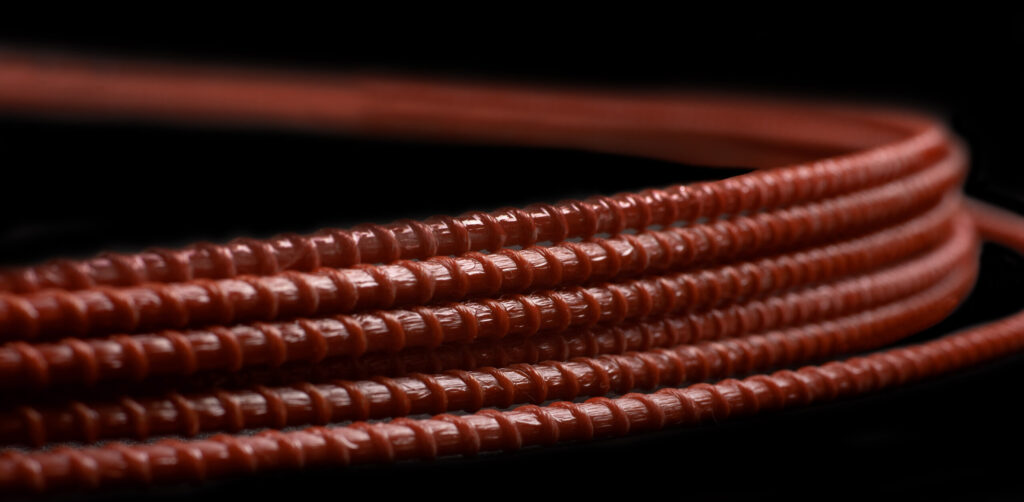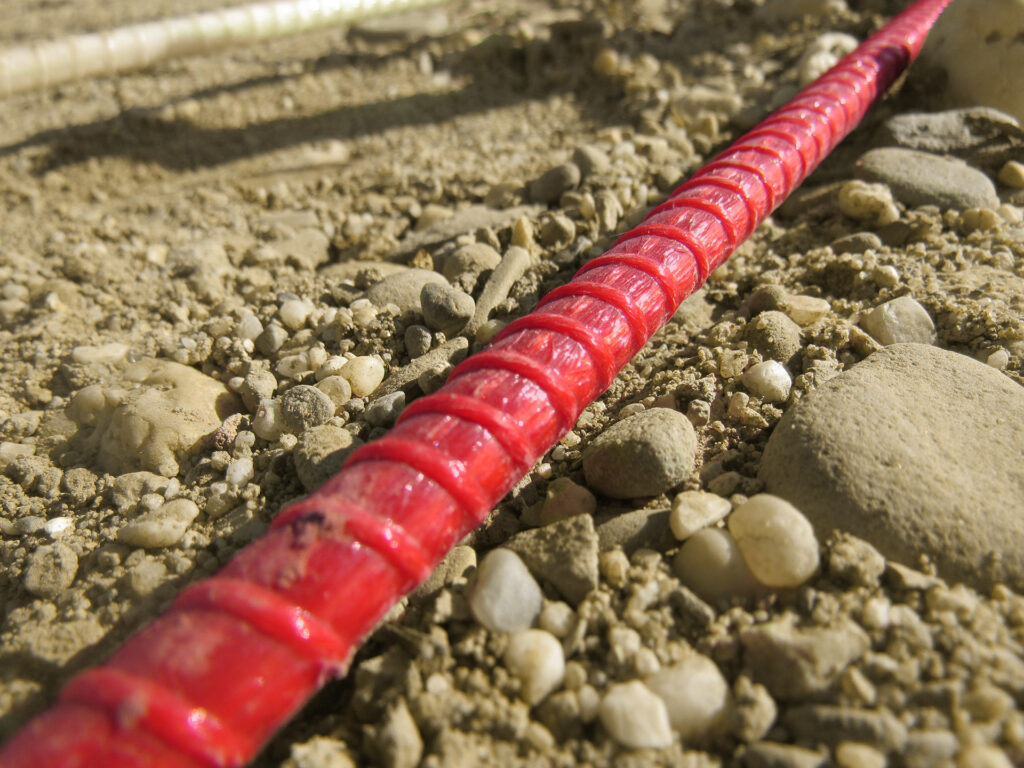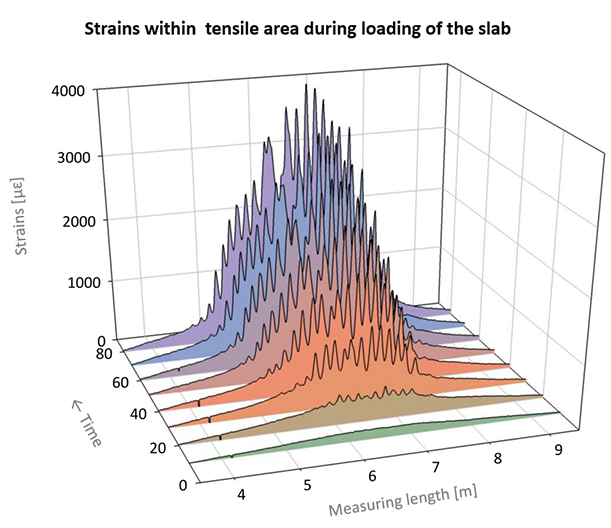the world’s first monolithic strain DFOS sensor designed for direct embedding into the structural member, concrete or soil
EpsilonRebar enables accurate strain and precise crack measurements over its entire length. It takes the form of composite rebar of any diameter (standard Ø 5 mm). It is designed for direct embedding into the newly-designed structural members (concrete or soil) or to be installed within existing structures (e.g. inside grooves in concrete or on the surface of pipelines). Thanks to its high stiffness and tensile strength, EpsilonRebar could be used as a bar with a double function: measuring and reinforcing. Resistance to mechanical loads and environmental conditions makes EpsilonRebar ideal for in-situ applications within construction sites or existing infrastructure.



SENSOR ADVANTAGES:
- STRAIN & CRACK MEASUREMENT ALONG THE ENTIRE LENGTH of the sensor, optionally also temperature changes
- EXCELLENT INTEGRATION with the monitored structure (ribbed external surface)
- MONOLITHIC SECTION WITH NO INTERMIDIATE LAYERS providing accurate readouts
- SHARP and PRECISE view of any local phenomena, especially cracks in concrete
- EASY INSTALLATION – lightweight sensor, ready to use when unrolled from the drum
- RESISTANT TO ENVIRONMENTAL CONDITIONS, including electromagnetic fields and lightning strikes
Applications:
- STRUCTURAL HEALTH MONITORING of engineering structures
- GEOTECHNICAL AND HYDROTECHNICAL ENGINEERING (e.g. slurry and retaining walls, piles, concrete columns, dams, embankments)
- LINE STRUCTURES: roads and bridges, tunnels, railway lines, pipelines and others
Application of DFOS strain Sensors for the structural health monitoring of real engineering structures allows for strain measurements over the entire length with a spatial resolution starting from 5 mm. The key thing is to use sensors that are accurate and reliable. EpsilonRebar provides new opportunities in the quantitative and qualitative assessment of strains and cracks in concrete. It allows for the precise detecting of the cracks locations and estimating their actual width during changing environmental conditions over the long term.

Technical specifications:
| Strain measurement resolution | 1,0 µɛ |
| Strain measurement range | ± 2% |
| Elastic modulus | 50 GPa |
| Operating temperature | -20 to +100°C |
| Sensor diameter | Ø 5-20 mm (standard Ø 5 mm) |
| Sensor weight | 45 kg/km (for Ø 5 mm) |
| Sensor material | GFRP (glass fiber + epoxide) |
| Scattering used | Rayleigh, Brillouin or Raman |
| Method of delivery | coils or straight sections |
| Sensor length | any length made to order |
Download
datasheetbrochure
See more
3DSensorEpsilonSensor
Applications
Eng. Structures>Geotechnics>
Laboratory>
